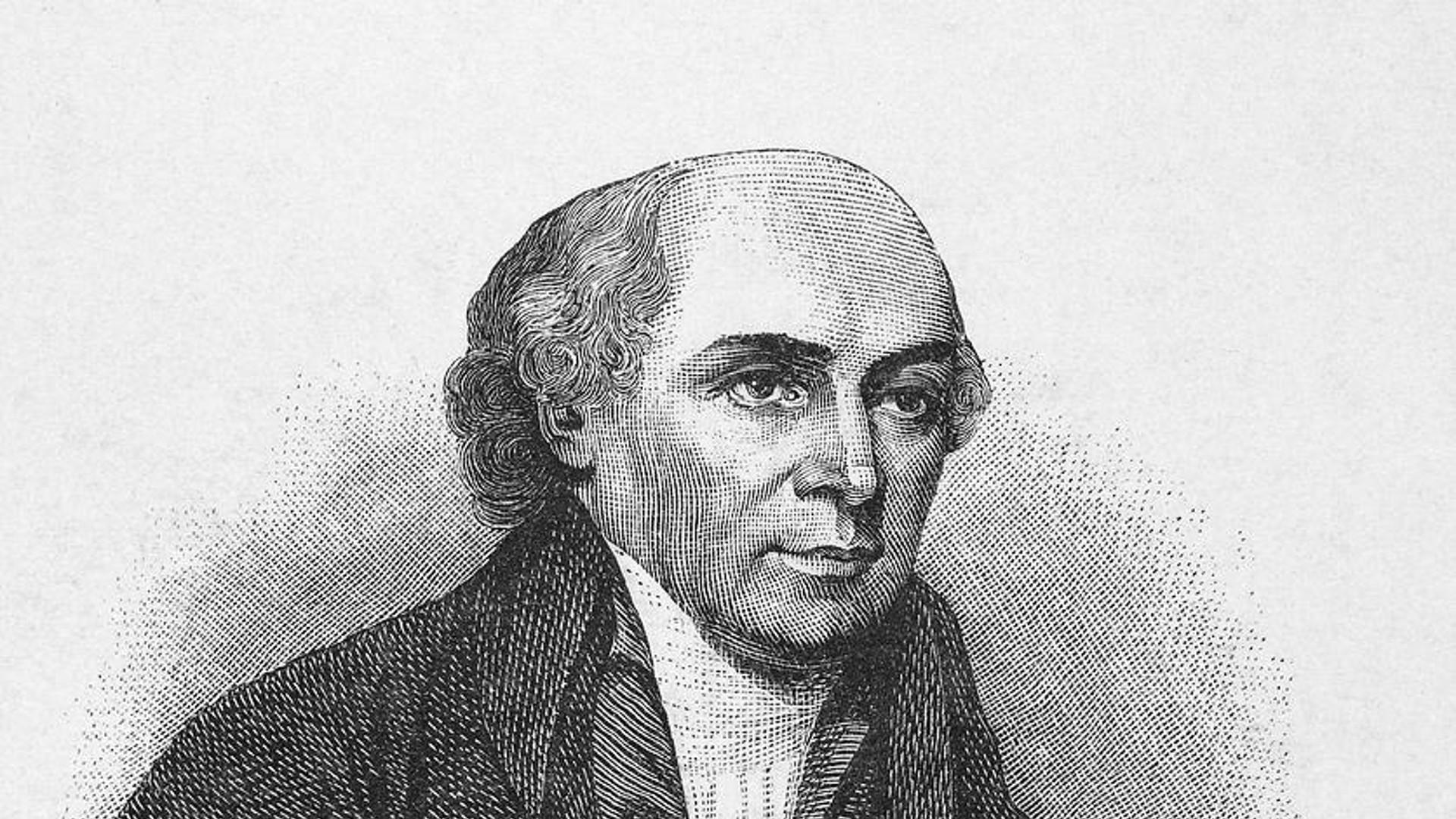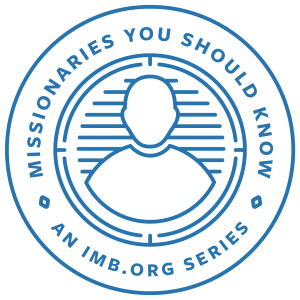
 Englishman William Carey (1761–1834) is almost certainly the most well-known missionary in Baptist history. Had there been no William Carey, it is uncertain whether there would have ever been an Adoniram Judson, Lottie Moon, or Bill Wallace. Carey has been called the father of the modern missions movement in the English-speaking world because of his forty-plus years as a missionary in India and the role he played as a missions apologist.
Englishman William Carey (1761–1834) is almost certainly the most well-known missionary in Baptist history. Had there been no William Carey, it is uncertain whether there would have ever been an Adoniram Judson, Lottie Moon, or Bill Wallace. Carey has been called the father of the modern missions movement in the English-speaking world because of his forty-plus years as a missionary in India and the role he played as a missions apologist.
Pastor and Missions Advocate
Carey was converted while working as a blacksmith’s apprentice as a teenager and then baptized by a Baptist pastor named John Ryland Jr. in 1783. Carey pastored a village church in Moulton, Northamptonshire, but because the church was unable to financially support the Carey family, he also worked as a grammar school teacher and a shoe cobbler.
Although Carey was mostly uneducated, he was a voracious reader who became very interested in literature about foreign lands, especially Captain James Cook’s journals of his travels. This curiosity about other lands slowly became a spiritual concern for the salvation of foreign peoples. Carey increasingly mentioned unevangelized nations in his sermons and wept when he discussed those with little access to the gospel.
“Carey had come to believe that the Great Commission of Matthew 28:18–20 was a binding command on every generation of Christians.”
As a young minister in the Northamptonshire Association, Carey became close friends with other young pastors like Ryland Jr., John Sutcliff, and Andrew Fuller. He was influenced by their evangelical Calvinism, which, unlike the dominant hyper-Calvinism of the era, included a commitment to evangelistic urgency.
When Carey attended the 1785 meeting of the association’s Ministers’ Fraternal, he was invited to propose a topic for the pastors to discuss. Carey proposed: “Whether the command given to the apostles to ‘teach all nations,’ was not obligatory on all succeeding ministers to the end of the world, seeing that the accompanying promise was of equal extent.”
Carey had come to believe that the Great Commission of Matthew 28:18–20 was a binding command on every generation of Christians. John Collett Ryland, the father of John Ryland Jr., publicly rebuked Carey at the meeting, calling the young pastor a “miserable enthusiast.” The topic was not discussed that day.
In May 1792, Carey published his treatise An Enquiry in the Obligations of Christians to use Means for the Conversion of the Heathens—a manifesto calling upon the Particular Baptists to engage in foreign missions. Later that spring, Carey was asked to preach the associational sermon before the 1792 meeting of the Northamptonshire Association.
His text was Isaiah 54:2–3.
Enlarge the place of thy tent and let them stretch forth the curtains of thine habitations: spare not, lengthen thy cords, and strengthen thy stakes; For thou shalt break forth on the right hand and on the left; and thy seed shall inherit the Gentiles, and make the desolate cities to be inhabited. (KJV)
In this sermon, Carey argued that believers must expand the territory of the kingdom by taking the gospel to foreign lands. The sermon, which was the perfect complement to the Enquiry, culminated when Carey urged the association to form a mission society, exhorting them to “expect great things, attempt great things.” Though no action was taken that day, in October 1792, a group of twelve pastors formed a society they named The Particular Baptist Society for Propagating the Gospel among the Heathen, later shortened to the Baptist Missionary Society (BMS).
All of the men were poor pastors, so the sum they raised to start the BMS equated to about twenty-three dollars in today’s US currency. Carey himself was too poor to contribute. Carey’s close friend, Andrew Fuller, became the secretary of the BMS, while Carey himself became one of the society’s first two missionaries.
Pioneer Missionary
In 1793, William Carey, his wife Dorothy, and their son Felix arrived in the British colony of India. John Thomas, a Baptist physician who had already been working with the East India Company, was also appointed, bringing along his wife and daughter. Dorothy’s sister Kitty also accompanied the party. The missionaries faced considerable hardship.
The East India Company was opposed to mission work. So the missionaries had to secretly sail to India on a Dutch ship. Once they arrived, Carey and Thomas became managers of indigo factories to support their families, but Thomas squandered all of the missionaries’ money. Within a few short years, Carey’s young son, Peter, died, Kitty left the mission to marry a British soldier, and Dorothy began to show signs of mental illness—a condition that ultimately took her life in 1807. Yet, Carey persisted through these challenges.
In 1800, Carey relocated to the Danish colony of Serampore, where he remained until his death in 1834. He joined two new missionaries in Serampore: Joshua Marshman, a gifted preacher, and William Ward, a printer. Collectively, the three missionaries came to be known as the Serampore Trio.
In 1805, Carey, Marshman, and Ward drafted the Serampore Form of Agreement, which laid out their missionary approach. The document proved very influential among later missionaries. As the trio’s missionary work was chronicled in the Periodical Accounts Relative to the Baptist Missionary Society, they inspired others all over the English-speaking world to answer God’s call to missionary service.
The Legacy of William Carey
Carey and his colleagues served as role models for a holistic vision of mission work. In 1800, Carey finally baptized his first convert, Krishna Pal, who soon became an evangelist. Despite these early years of minimal fruit in terms of conversions, by 1821, Carey and his associates had baptized 1,407 converts. Marshman proved the most gifted evangelist and apologist on the team.
Carey’s great gift was linguistics, so he translated the Bible and various other works into Bengali and several other dialects. Ward printed and distributed these resources. Carey’s commitment to Bible translation proved his most important legacy, and his Bengali Bible was widely used, becoming the basis for subsequent translations in that language.
The Serampore Trio also promoted education, founding Serampore College. Although the school educated believers and unbelievers, its primary goal was to train indigenous ministers. Carey and his colleagues also labored for social reform. Most famously, he was a fierce critic of the practice of widows burning themselves upon their late husbands’ funeral pyres—a horrific practice that was often forced upon widows who had little voice in Indian culture.
“Carey’s holistic approach to missions provides a template for missionaries who wed evangelism, translation work, and ministries that contribute to human flourishing.”
William Carey continues to be revered for his place in the history of evangelical missions. His journals and letters, his Enquiry, and the Serampore Form of Agreement continue to inspire a passion for fulfilling the Great Commission. His holistic approach to missions provides a template for countless missionaries who wed evangelism, translation work, and ministries such as education, social reform, and health care that contribute to human flourishing. Contemporary believers would do well to become more familiar with Carey and his missionary legacy.
Nathan A. Finn is provost and dean of the university faculty at North Greenville University in Tigerville, South Carolina. He has written widely on Baptist history and the history of Baptist missions, including coauthoring The Baptist Story: From English Sect to Global Movement.
Recommended Resources
William Carey, An Enquiry into the Obligations of Christians to Use Means for the Conversion of the Heathens (1792).
Timothy George, Faithful Witness: The Life & Mission of William Carey (New Hope, 1991).

